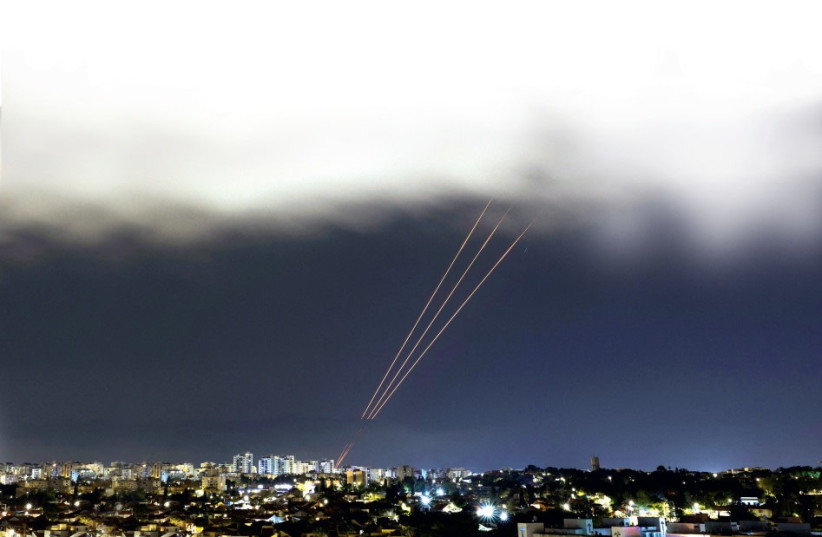The US has to be ready for what could be a significant set of attacks against Israel by Iran and its proxies, US National Security Communications adviser John Kirby told reporters in a virtual briefing Monday, as international diplomats raced to avert a regional war.
“We have increased our force posture and capabilities in the region even in just the last few days,” Kirby said, adding that “we have to be prepared for what could be a significant set of attacks.”
The most important step right now is making sure that "Israel can defend itself and that we, the United States, have in place the proper force to help them defend themselves,” Kirby said.
Coalition of five armies
The US had led a coalition of five armies, including Israel, Jordan, France, and the United Kingdom, in April to defend Israel from an Iranian attack that included 300 missiles and drones.
It’s presumed that it would activate that same coalition, but it prefers to avert that situation through an intense diplomatic effort to pressure Iran and Hezbollah to refrain from reprisal attacks against Israel.

The “United States and our allies and partners continue to message our counterparts in the region against escalation,” Kirby said. “Some of our allies and partners continue to send that message to Iran… that we don’t want to see escalation,” he stressed.
The US has in the past week explained that it has passed the message to Iran urging constraint and restraint.
But the US has also prepared militarily to support Israel. The Pentagon said on Sunday that Defense Secretary Lloyd Austin had ordered the deployment of a guided missile submarine to the Middle East and for the USS Abraham Lincoln carrier strike group to accelerate its deployment to the region.
“The president is confident that we have the capability available to us to help defend Israel, should it come to that. Nobody wants to see it come to that, which is why we continue to have [had] these diplomatic conversations in earnest over the last few days to see what can be done to de-escalate the situation,” he said.
The US and its allies have expressed concern about an increased likelihood of an attack, as Jews around the world mark Tisha B’Av, a religious day of fasting and prayer, that marks the destruction of the ancient First and Second Temples over 2,000 years ago. There had been reports from the start that Iran, for thematic reasons, would attack Israel on Tisha B’Av.
France, the United Kingdom, and Germany issued a joint statement urging restraint, which was then followed by a larger statement that included the United States and Italy.
The leaders of those five countries, who held a joint call, stated: “We expressed our support for the defense of Israel against Iranian aggression and against attacks by Iran-backed terrorist groups.
“We called on Iran to stand down its ongoing threats of a military attack against Israel and discussed the serious consequences for regional security should such an attack take place.”
Britain’s Prime Minister, Keir Starmer, spoke with Iranian President Masoud Pezeshkian for 30 minutes as part of de-escalation efforts to ease tensions in the Middle East, Sky News reported on Monday.
German Chancellor Olaf Scholz appealed to Pezeshkian to do everything possible to prevent a further military escalation in the Middle East in a phone call on Monday, according to a German government spokesperson.
Israel has been fighting a war against Iranian proxies since Hamas invaded the country on October 7, killing over 1,200 people and kidnapping 251 hostages.
A direct Iranian-Israel war became more likely after the assassination two weeks ago of Hezbollah Commander Fuad Shukr in Beirut and Hamas leader Ismail Haniyeh in Tehran. Israel has accepted responsibility for Shukr’s killing, but not Haniyeh’s. The IDF, however, is widely presumed to be responsible for his death.
